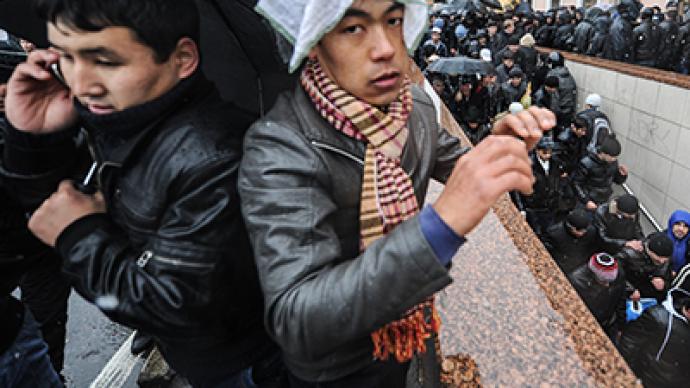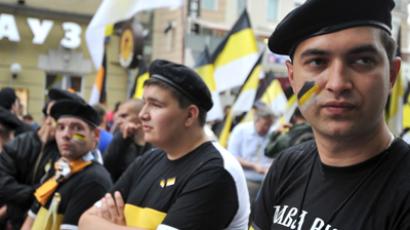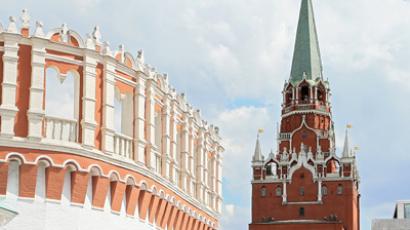Russia considers state PR agency to promote ethnic peace

The Presidential Council on Interethnic Relations suggests that the new agency should operate under values that unify the nation, but also monitor the tolerance levels in mass media.
The authors of the initiative, Vladimir Zorin and Maksim Shevchenko, said that the agency must be privately owned but work on state orders and become a think tank, working with mass media and creating trends in the public sphere. In particular, the new body could commission books and movies that form the positive image of inter-ethnic accord, said the members of the council. They also claim that the urge for such body is more evident in the light of recent accidents motivated by race and ethnic hatred, especially those that get extensive coverage from the media. One example was the January incident in Moscow in which a street sweeper from Uzbekistan reportedly assaulted a 12-year-old schoolboy, breaking his jaw with a spade handle. The migrant worker was arrested and charged, but as the story quickly spread in mass media and social networks it became known that the schoolboy was a local bully who had harassed the worker together with his friends. After the intervention of the local residents’ community the case was closed as the parties agreed to out-of-court compensation.It is important that reporting on this delicate subject is done in a professional way and with respect to all ethnic groups of the Russian Federation. Zorin and Shevchenko said that the agency could hand out awards to journalists who write on ethnic relations and also conduct research for state agencies. They promised that the idea will take its final form in the official concept that will be submitted to the president in March. Russia approved its national strategy on ethnic policy in 2012. In addition, President Vladimir Putin outlined the most important issues in a newspaper article published before the latest presidential elections. The strategy and the principles concentrate on the necessity to promote ethnic and cultural diversity and on helping both internal and external migrants to find their places in the community. At the same time, the official Russian position is strongly against the ethnic enclaves with internal governance. Some politicians and public activists have raised concerns over the growing number of migrants in Russian cities, especially in the capital. MP Valery Rashkin said at a Tuesday roundtable in Moscow that the 10-million-inhabitant city is currently hosting 2 million migrant workers – almost double the 10 percent that international experts hold as the maximum safe level. Other roundtable participants, however, claimed the data is exaggerated and based on urban myths. According to a recent opinion poll, the majority of Russians support the official position but also want the migration laws to be tightened. Seventy-seven per cent of Moscow residents polled by the VTSIOM public opinion center said they wanted stricter migration rules, compared to 65 per cent supporting changes one year back. Along with the fight against illegal migration and crime among newcomers, the Russian authorities have to fight crime motivated by ethnic hatred – about 1,000 criminal cases into such violations were launched in the country in 2012.














